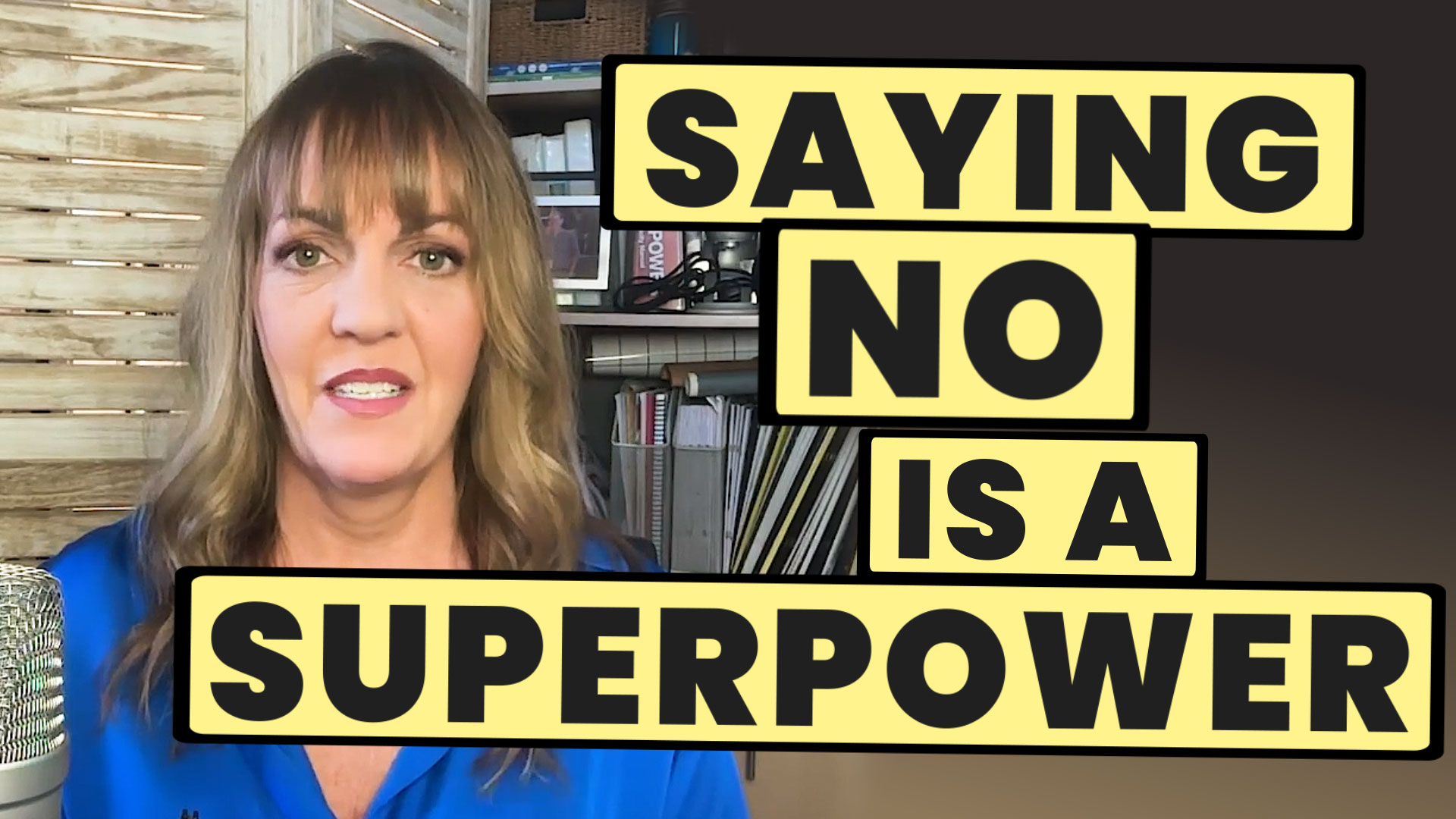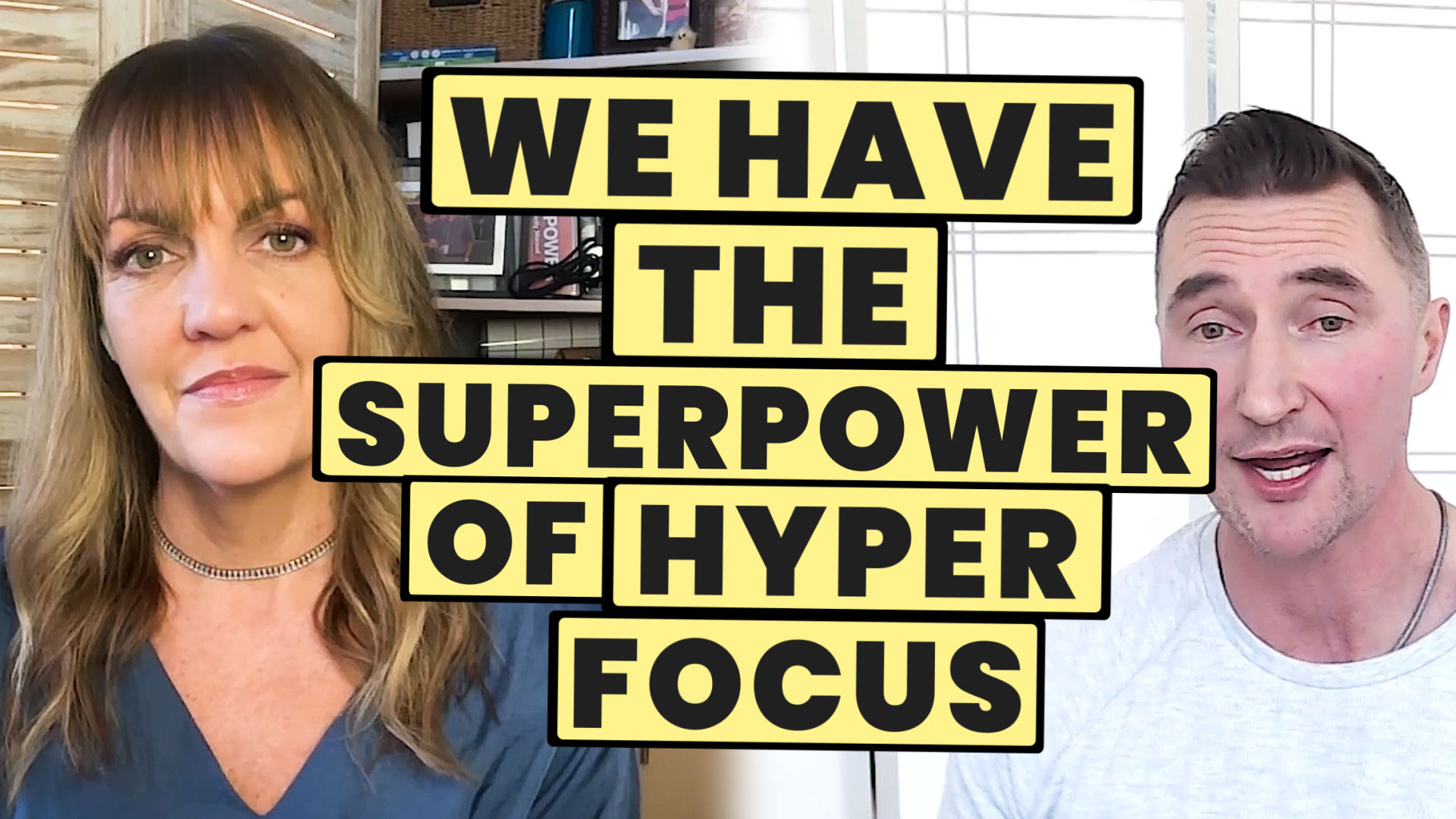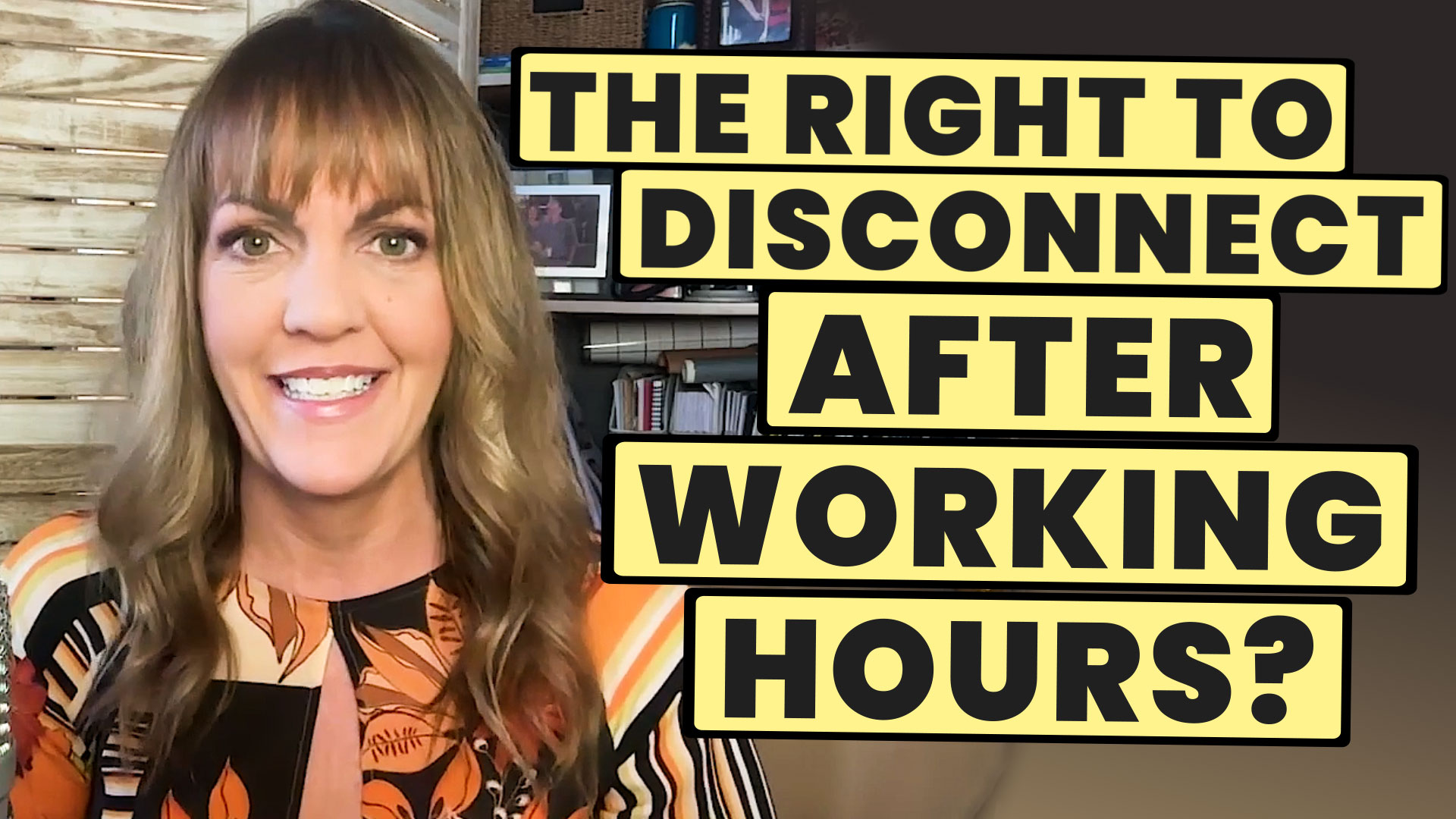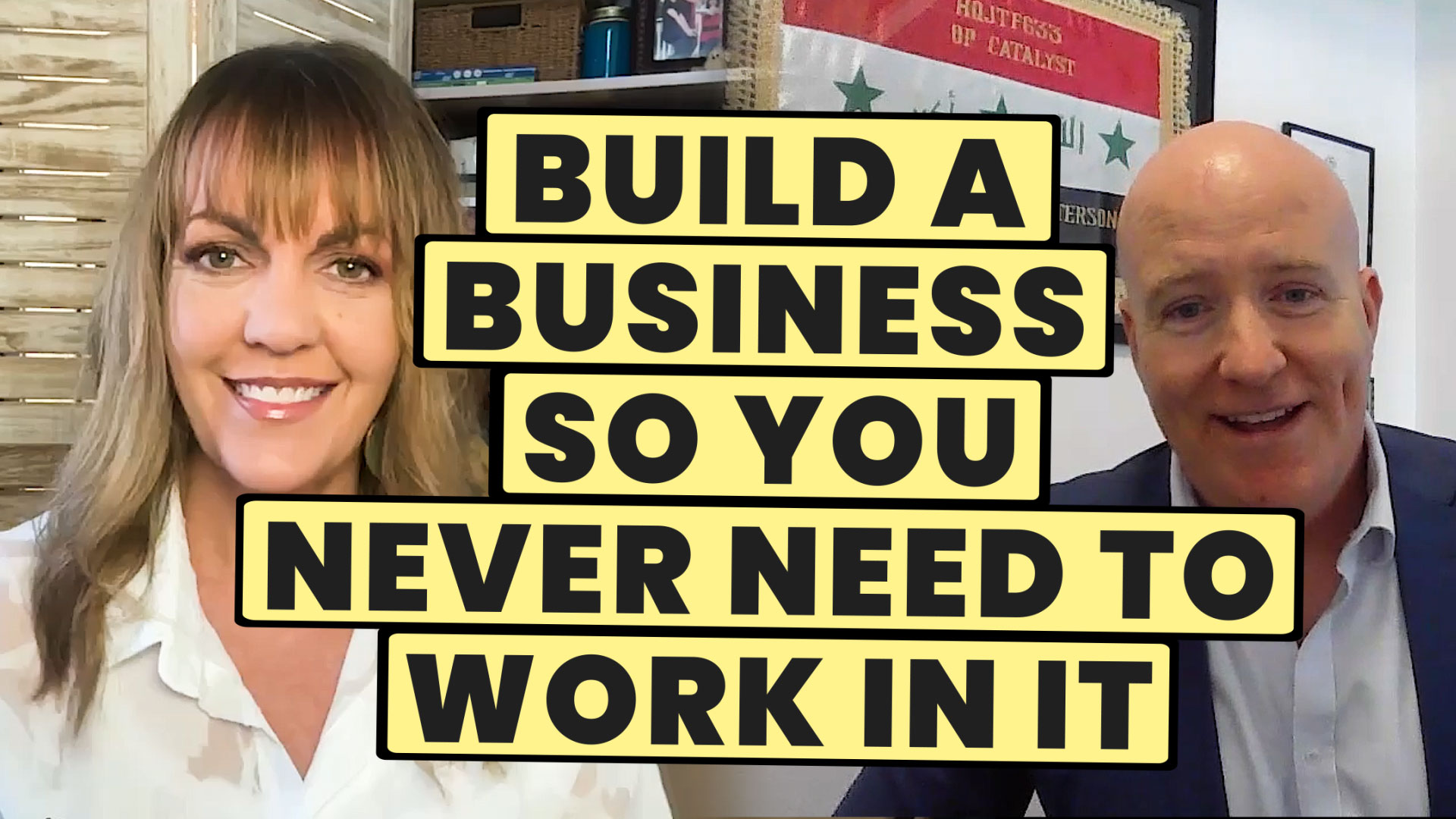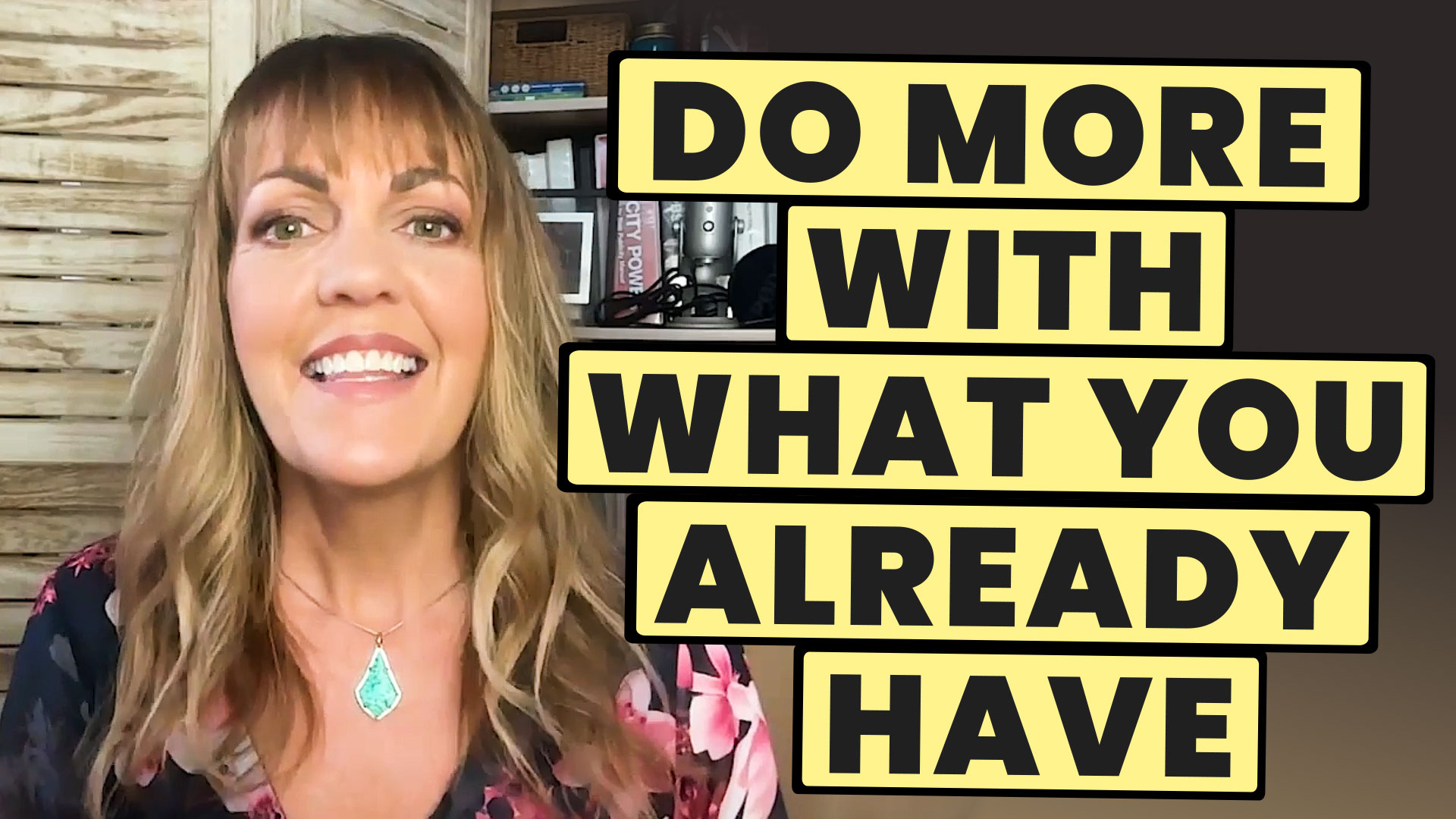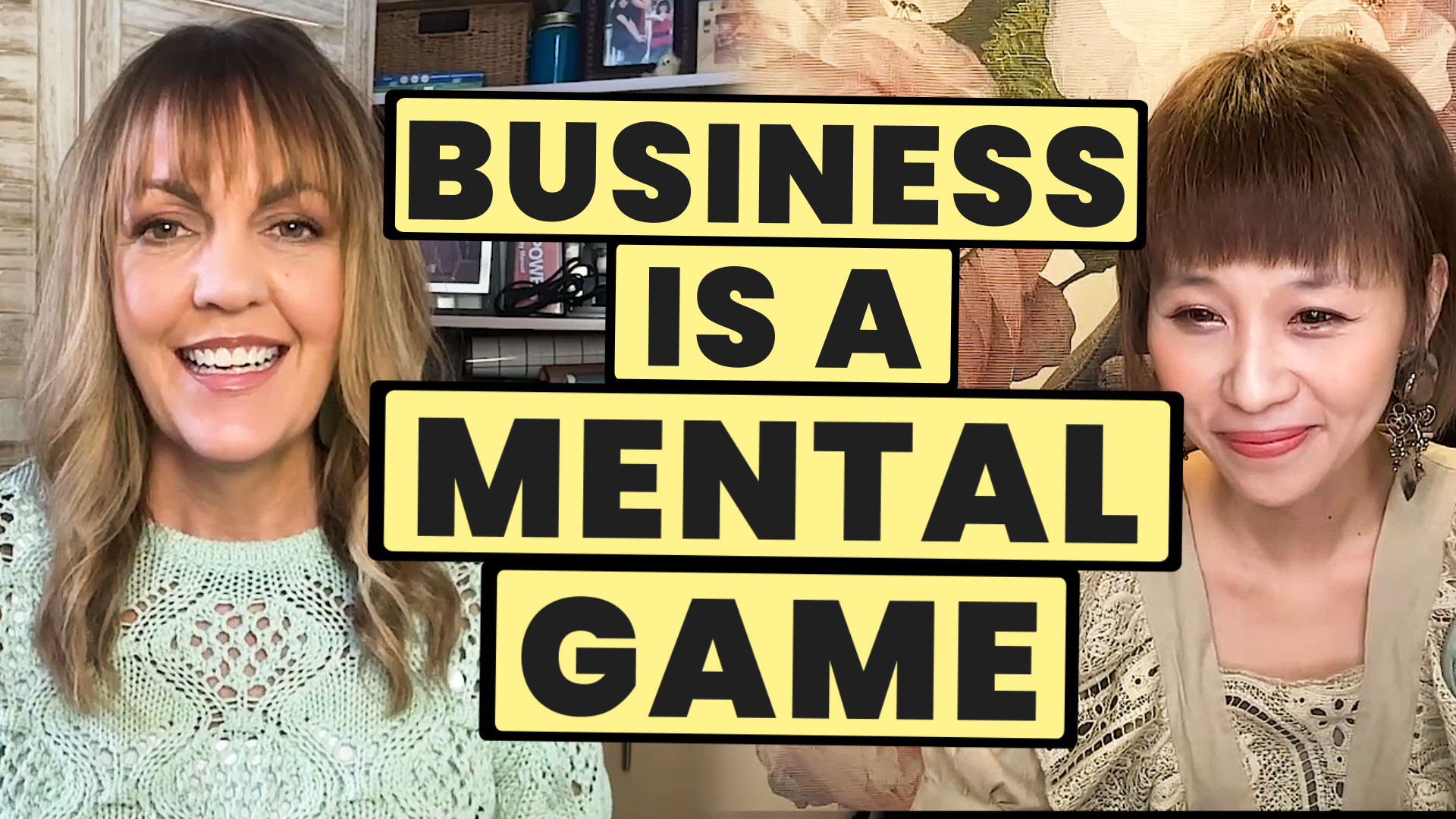Episode 29 Transcript
Heather:
All right, you guys, I'm so excited to welcome Pete to the show. Hey, Pete, how's it going?
Pete Liston:
Hey Heather, lovely to be here.
Heather:
So good to have you here. I was just on your pod like a week ago and we had such a good chat. It was like, I've got to get you on the show because the stuff you're about to share, I know it's going to really, really help all of our listeners. So thank you for being here.
Pete Liston:
I loved it.
Heather:
Cool. Well, I don't like to muck around. I just jumped straight in. I love to start with tips straight up. Um, and I know you, you have some really good tips cause this is actually kind of what you do in your business. What are three? great tips that you have for businesses that are growing to not grow with so much like full on hustle, grind, stress, and overwhelm. Three tips. What are they?
Pete Liston:
Yeah, perfect. So my three tips are straight up. Systemize, automate, delegate. Now most business owners are gonna get to this point where they hit their own glass ceiling, where they're basically trying to do everything for themselves, they're the victims of their own success and they're still clinging on to the business being about them rather than letting it go and being its own thing. So systemize is all about great process and process means how to capture excellence and repeat it. Automate is all about using the right tech platforms and how do we drive digital leverage? And delegate is all about empowering your people. So systemize, automate, delegate, think of it like great processes, great platforms and great people.
Heather:
So when, when does somebody need to do these? Do they do them in a certain order? When do they need to start looking at it? Like talk to me about that.
Pete Liston:
Ah, perfect. There's a saying that's, the best time to plant a tree was 20 years ago, and the second best time to plant a tree is today. Okay, so when we're doing this stuff, systemize, automate, delegate, it's never too late, but it's actually just a shift in mindset about how we actually look at our role in the business. And what we actually wanna do is not be at all about me or me getting it done, but my way of getting it done. So systemizing captures the way that I wanna get it done and is able to share it with other people. And automation is all about how we create consistency and really drive that performance through our digital platforms.
Heather:
So, you know, I, it's interesting because this was a big mindset shift for me in this business. Last business, I was like, you kind of were saying before, I was like, oh, if it's going to be done, right. It's up to me. It's a toxic mindset. You get so stressy. This one I'm different. So I have an assistant, um, on the team and anytime that I have a new idea, I'm like, go out there and create. an SOP, like go out and create the actual document. And then we'll decide like what we need to do to make that a system and build it and automate it. So I am such an advocate of what you're saying. And I want to touch on, I think, I think the systematized point is kind of clear. It's like, oh, if you keep redoing something over and over again in your business, then make a system. But automation, there's a lot. of pathways or conversations we could have just off of automation. A lot of people are kind of unclear on what that actually means. So what is automation?
Pete Liston:
Look, there's many things that automation entails. So there's a couple of kinds of automation. There is automating a message to go out at the right time. So what we can do is using our platforms. If an event occurs, we can automate a message to go out or a thing gets done. We can also automate things like actions that we have to follow up on. So when an event occurs, we can automate a reminder for somebody else to do something. And then there's sort of platform to platform automation. where if something happens, for example, in your CRM, or you move or touch something in your CRM, then that actually completes an action in another platform. So it's all about understanding your process first, because in business, it's really just a journey of A to E through B, C and D. And if we can capture that consistency, we can identify where our highest space is, what things we must do, what things we can automate, and what things we can delegate. to be able to really drive that performance in the business.
Heather:
So how do you know, gosh, okay. So if you start to have systems and you're starting to look at these automations that you can add in, whether it's in, you know, rule-based email marketing or tasks, your team or whatever direction you take it, how do you then know who to delegate that to?
Pete Liston:
Yeah, look, I love it. I love it. So for me delegation and I got all my passion for delegation through being an army officer for many years. So for example, you know, in one of my platoons that I commanded, all of my soldiers were tradies. So they were like, electricians and fitter turn fitter turner, fitter turners and armorers and mechanics and I was none of those skills. Okay, I was not a tradie. So but I needed to grab the intent of what we wanted to achieve. and delegate that down to my team to get it done. So, basically in business, I believe that we should do two things. You get to do the things that you love, because you're the boss, you're the business owner or the business leader, and you get to do the things that only you can do. Right, so after that, we need to create our to-don't list. And this is everything that one day you're not gonna do. So, and I'm not just talking about dumping it immediately. but sooner or later, you're gonna elevate yourself by letting these tasks go and empowering other people to do them.
Heather:
Wow, that's good. Okay, so now that we have this sort of flow of systemize, automate and delegate, I wanna kind of come about it from a different angle. And I wanna think of a business that you have worked with recently. Actually, I'm not sure where you're gonna take this. This could be with trust the processor, you have a few irons in the fire,
Pete Liston:
Yeah, yeah.
Heather:
but walk us through. how you work with somebody. So give us, paint the scenario, like who's this person you worked with? Where did they come from? What do they do? And how did you work with them? And where are they now as a result of that?
Pete Liston:
Gotcha, so what we do in Trusted Process is we basically help people do process improvement. Then we implement simple tech platforms like CRM. So people might have heard of HubSpot or ActiveCampaign. So basically that's the platforms that we drive automation through. And then we've got also got an outsourcing agency which does the delegation part of it. So virtual assistants and offshore team members. So when people come to us, they're either looking for a... a digital solution or a human solution, a platform or a person. But really what we wanna be interested in is the process behind those two. So for example, there's a good mate of mine, a guy named Ben who's running a super business called Young Hoopers. Now, if anyone's got kids between the age of like two and five, they might've gone to Little Kickers or some little camp where kids like kick a footy around. Well, Young Hoopers is like that for basketball. Little Kickers is now franchised all around the world, like in 20 or 30 countries, and Ben's just driving momentum. He's just got such leverage in terms of his leads coming in, but he's got hundreds of kids turning up to hundreds of different training times across many locations across Sydney every week. And he's got a goal of actually launching that business across the country. So whenever there's so much movement or there's so many serials, systemization is everything. So what we do is we do a bit of business mapping at the start, just to capture consistency in the stages of the customer journey.
Heather:
Mm.
Pete Liston:
Once we capture that, we literally sit back and say, well, how much of this stuff could be done through automation, through something like our CRM? And we grab all of that first, because we always want to automate before we delegate. Now
Heather:
Yeah.
Pete Liston:
we can see what's left. You know, I really challenged Ben and I say, look, what do you do right now in the business? And let's just say, Normally business owners will select about 70% of the actual steps. And then I say, what are the things that you should be doing?
Heather:
Ha
Pete Liston:
And
Heather:
ha.
Pete Liston:
then it comes back to about 20% of the steps. So now we've got a very simple model of the tasks or the actions or the steps in the process. We now simply delegate. Then it's just a matter of getting the right team member with the right experience and the right place for the right price, whether that be here or offshore, it doesn't matter. It's about the concept or the mindset of delegation that's most important.
Heather:
So with Trust the Process, do you have both those aspects? You actually do the build of the automations and you actually bring the team on board or is that different departments or businesses?
Pete Liston:
Um, we do it separate or together like either or, uh, as
Heather:
Yep.
Pete Liston:
in some, sorry, either and some people just want to come and do some process mapping to really get that consistency. Other people will come to us wanting a HubSpot build and then we just focus on that, but now some clients, we sort of mold together a package for all three. But, um, just on that point of why people come is one of the things that we'd like to, you know, you might think you come and want an offshore worker or a serum, but I really want to understand. What. you really are trying to achieve out of that. And ultimately for me, it comes back to control. So a lot of business owners, the fact that they grinding and the fact that they're hustling so hard is because they haven't learned how to let go. And that's a lack of trust or confidence or a lack of control. So really definitively, I see control as being a combination of consistency plus visibility. If we can drive consistency in a business, i.e. capture excellence and repeat, and then we can make our processes visible and our actions visible in the business using our tech platforms, then the business owner or leader can see what's happening and can have confidence it's been done the right way, and then they start letting go. So if we can give them a sense of control. then they've got the ability to delegate with more trust because they understand that it's happening the right way by the right people.
Heather:
Very good distinction, Pete. I like that, yes. So, because I've had experience with my own team overseas and people coming to me that are completely jaded because
Pete Liston:
Yeah.
Heather:
they just go all outsourcing or delegating. It just doesn't work for me because they've never thought in a different way and they probably have never. actually mapped out what they need in the first place. There's so many missing pieces, so therefore they have a blanket statement. It just doesn't work for me. Do you find that people ever come to you with that? Hey, it's just not going to work.
Pete Liston:
Look, it's a real challenge because for me, and talking about the hustle rebellion,
Heather:
Yeah.
Pete Liston:
I don't wanna be too bold when I say this, but if you're gonna martyr yourself to the business and you're actually going to say, well, working after dinner or on the weekends is more important to me than coaching a kids' soccer team or exercising or focusing on your relationships, we can't help that. But if people have the aspiration to do it, We've got to remember that process performance and improvement isn't like winning the lotto. It's not like you turn up tomorrow and everything's just magic. It's the same mindset as going to the gym. You go every day, you work on little things, you improve little things, and it's a constant quest for performance. Now, one of the things that really stuck with me from my military career was when I first marched into the third battalion, my commanding officer said to me one thing. He said, to be highly successful here, you just need to be brilliant at the basics. Okay, you don't need to change the world or do magic things, just be brilliant at the basics and you'll be successful. I was sort of a bit shocked by that, but that's the essence of process.
Heather:
Yeah.
Pete Liston:
So that's where we drive to do the little things really well and just come back and repeat them.
Heather:
That is, I'm so glad you said that many of those things you said, but specifically that point, because my background coming from the industry of personal development and working with quite well-known speakers in that space. Um, as much as I liked it, there is a level of toxicity in it because you go and it's like set massive goals and people literally, I cannot tell you how many times the guys would say, I want to be the next Tony Robbins or the girls would say, I want to be the next Oprah. And it's like, okay, that's fantastic. However, the, the divide and the chances of you becoming that figure are so massive. So it's almost like they never get started in the first place. So that's kind of an interesting point that you mentioned about that.
Pete Liston:
Well, one of my heroes and he's on the bookshelf on the wall there is Kobe Bryant. And
Heather:
Yeah.
Pete Liston:
Kobe was amazing, like first of all, because he did have an insane appetite for work. Like he did love working and that was his thing, you know, that the practice.
Heather:
Yep.
Pete Liston:
But his expertise actually lay in the study of his art and being amazing at little things.
Heather:
There you
Pete Liston:
Like,
Heather:
go.
Pete Liston:
and the same in business, you know, we don't get from zero to a hundred overnight. We just turn back, sorry, we turn up every day. and we just look for little things to improve. So as you always talk about, this is a mindset.
Heather:
It is, it is little things to improve every single day. And by doing that, you, I don't know, just it shifts. It does shift how you feel about yourself. Uh, also you are like, cool. I've experienced, I've done something good today. And, and you have these moments where you can be more present with your family or your friends because you're not sitting there going, Oh God, I failed yet again. I'm never going to be the next Oprah. Whatever goes on in the mind. Right. So,
Pete Liston:
I
Heather:
I
Pete Liston:
guess
Heather:
like that.
Pete Liston:
one of the things there is the quest for growth. And
Heather:
Yeah.
Pete Liston:
I think we've both been through this. We've both had businesses with really big revenues with lots of money and this kind of stuff, but really
Heather:
Yeah.
Pete Liston:
growth, don't get caught up in this fever for growth. Get caught up in focusing on trying to be a good person, a good partner, a good mom or dad, a good friend. These are the cornerstones of why we're people. It's not about making seven, eight, nine figure revenue businesses or, you know, well, that's my personal opinion anyway.
Heather:
I agree. And I think only spoken through the eyes of somebody who has seen the other side as well and knows that there is options to say no to certain things and yes to certain things
Pete Liston:
Yeah.
Heather:
that are important to you. So I do want to talk a little bit at the start of the conversation with the case study, you mentioned that you started, was it Ben was the guy,
Pete Liston:
Yeah, Ben.
Heather:
the name Ben?
Pete Liston:
Yep,
Heather:
Yeah.
Pete Liston:
from Young
Heather:
So
Pete Liston:
Hoopers.
Heather:
with Ben, you were saying you started with a bit of like a mind map or a mapping process. Talk to me a little bit about that. How does that process work?
Pete Liston:
It's actually super simple and anyone can do this at home after this pod. So the first thing and the simplest way to do it is a couple of different colored Post-it notes, right? And a blank wall somewhere. And here's a very quick example of the stages of a pipeline that you could probably use in your business. And they're all about the level of understanding or engagement between us and our clients. So the first thing we map is just basically what are those key stages. because we want to really make sure we have a sales process that can't leak. So here's a, here, I'll rattle off a quick, quick few. And they go from your level of understanding of each other. Stage one, unaware. Stage two, aware. Pretty logical, you know, they don't know we exist, but now they know we exist. So we move people through these stages to get to the end state. Then they get engaged with our content. So they've taken that level above being aware. Then a beautiful moment happens where they become interested in us, or it's an inbound lead, and that means they're saying, tell me more. And then we need to get them to a discovery session to see if we're right for each other. Then we might have to work on a solution, then we present it, then we follow it up. So it's about just understanding these key steps that we need to work through with our client to make sure, number one, we're right for them, but number two, are they right for us? And then, so we map this out, and then we say, Well, what are the four things we need to do at each stage? Do we want to send a message? Do we want to ask a question? Do we want to complete an activity? Or do we want to automate something? And that becomes the matrix for the mapping, which we then express in either the tech platforms or in our duty statements or our tasks for our team. So we keep it super simple. Just follow the steps and follow the bouncing ball.
Heather:
Do you know how simplified you just made that sound? You're probably seriously, Pete, over the years, that was such a beautiful, concise answer to how that process works. And I feel like anyone could go, if I were just guided in how to do that, I could see how my whole business could transition and change, so.
Pete Liston:
Well, 90% of businesses will do that. Unless you're
Heather:
Yeah.
Pete Liston:
e-comm where it's like awareness click, but any kind of B2B business or any kind of business interaction where you have to create a relationship with someone who doesn't really know who you are and why you do it, those sort of nine steps will work for 90% of the businesses out there.
Heather:
So smart. Okay. Let's transition again back into the world of overwhelm. So in moments in your business, when you have moments of overwhelm, um, however, full on or not full on those moments are, what do you do to come back to the planet, ground yourself and get through those moments?
Pete Liston:
Um, I'm quite lucky because, uh, having, you know, done 11, 12 years in the military, I was fortunate enough and had the privilege to command soldiers in warlike and peacekeeping operations. Um, and there was, you know, one thing that we were taught by the psychologists and army, if you've got a really like super stressful, like I'm freaking out kind of moment, then
Heather:
Yeah.
Pete Liston:
sight, touch, smell, is there something I can just focus on for a moment? Is there something I can touch and just feel it in my hand? And can I smell anything? So that deliberate action of just focusing on those three things can instantly sort of just bring us back to the moment and just give us a, you know, just to get us out of that initial spin. For me, another one that I use is simply box breathing, which is breathe for four, hold for four, breathe out for four, hold for
Heather:
Yep.
Pete Liston:
four. So a couple of these little tools, you know, is like when you're in a bit of a, you know, Like all of us, sometimes get a bit anxious, freak out, just to sort of have a bit of reflection. But for me, who's someone that has had trouble getting to sleep and sleeping sometimes, whether it be thinking about different things in life, just lying in bed and then working from the tip of your head all the way through to your toes, quite slowly, and just trying to release and relax every little muscle all the way down. And then by the time you get to the feet, you just start your box breathing and you try and think about nothing.
Heather:
Yeah.
Pete Liston:
And if you start thinking about something again, stop, just go through your motion again and try and think about nothing. And for me, that's been super helpful just to get to sleep.
Heather:
That is so fun. Do you know when you were saying that? I was thinking back to the time when I was a little girl and I'd have, you know, sometimes challenges sleeping and my mom would come in and she'd do this little exercise with me. She'd say, okay, what you do, tense your arms. Now release
Pete Liston:
Yeah.
Heather:
them. Now tense, like tense every muscle, now release it so you're very aware that you're releasing the pressure. It just brought me right back to that time and how helpful that was even then.
Pete Liston:
sometimes when I do my head to toe thing,
Heather:
Yeah.
Pete Liston:
it's like, you know, that when if you've ever had surgery and you get under generals, they're like count from 10 down and you get to about seven and you're
Heather:
Yeah.
Pete Liston:
done. So yeah, it's just a little trick. But it's all just about, you know, just breathe and pause and I'm actually, you know, trying to get into meditation and yoga a lot more
Heather:
Yeah.
Pete Liston:
these practices are something that I'm starting to embrace and I find they're really helping.
Heather:
There's a really great app because I'm on that same journey as you is now. And, and I just have to look, I'm looking at my phone guys, if you're watching on video, it is called brain.fm. Have you heard of that one Pete
Pete Liston:
Oh
Heather:
yet?
Pete Liston:
no,
Heather:
Brain,
Pete Liston:
I'm Googling
Heather:
brain
Pete Liston:
now.
Heather:
FM. So
Pete Liston:
It's on the
Heather:
what
Pete Liston:
list.
Heather:
it is, is it's, um, it's an app that you basically choose if you want to go into work mode and it does like, it uses, um, sort of meditative music that's proven to enhance your brain waves. or you can go into meditation. So it's like focused work or meditation. And just like you, it's interesting that I'm starting to work with that. At least, and my, look, my whole big grand scheme, speaking of hustle and all that, is like, I'm like, I'm a, I go right in, I'm gonna do my best, and I bought like a meditation mat and like a pillow and a candle, and I was setting up this area to do my meditation, I'm like, I'm gonna do it every day at this time. And then I didn't do it, and I started to beat myself up, and I'm like, you know what, why can't I just sit at my desk or go sit on the deck? Just do five minutes a day. Like, why am I stressing myself out to try and unstress? You know? So
Pete Liston:
Yeah,
Heather:
it's like,
Pete Liston:
it's funny.
Heather:
simple.
Pete Liston:
Meditation and yoga, you know, again, being a sort of, you know, army guy, I sort of thought, well, you know,
Heather:
Yeah.
Pete Liston:
it's not for me kind of thing. But just don't be afraid to try these things. Because at like,
Heather:
Yeah.
Pete Liston:
I haven't, I'm fresh at this. I've only just started. But, you know, my body feels better, you know, my mind feels better. Don't be afraid to give it a go and just sort of take it as it to find a group or find something that works in your style. But what
Heather:
That's
Pete Liston:
I love
Heather:
it.
Pete Liston:
the most about this stuff is the term practice. Like it is a practice and we just keep practicing it until we get better.
Heather:
Absolutely find what works for you guys.
Pete Liston:
Yeah.
Heather:
That is the key. So, um, so now I love to ask this next question because it makes my guests squirm literally in their chair. The question is what makes you extraordinary?
Pete Liston:
Whoa, that is a bit of a squirmy one. I guess the first thing is, what makes me extraordinary is that I'm probably very ordinary. In terms of just a regular guy doing his thing, I was a farmer before I joined the army who fell in love with business. So I guess in that classic Australian way, just very egalitarian. I love people no matter who they are in the world. I've been very,
Heather:
Yeah.
Pete Liston:
very fortunate to travel lots and lots of places in the world, and I've never ever had an experience in any country where I haven't been embraced at some time by someone who doesn't speak my language. So I guess just a regular bloke who's, you know, what you see is what you get.
Heather:
I can attest to that. I've known Pete for a while, you guys, and he's the most humble down to earth, like so easy to chat with guy ever. And I'm sure you're picking up on that right now. And the reason why I think you're such a success and trust the process, your business is that there's a lot of people that sort of have these companies that help with automations or building systems. And I feel like they come at you and whether that's right or wrong, but they sort of I've definitely seen the condescending language not with a lot of heart and you're the opposite like you are literally as you guys have heard so simple the way you explain things and so non-judgmental and I know that's why you've grown your business really fast and are doing a good job so I will definitely agree with what you said
Pete Liston:
To be honest, we're just normal people who love people and business
Heather:
Yeah!
Pete Liston:
owners, business leaders, they're aspirational, they're hungry, they're hardworking, but a lot of times they're just one or two tweaks away from that classic saying, having cake and eat it too. If you
Heather:
Yeah.
Pete Liston:
can just help with one of those tweaks and ultimately create a little bit of time so that they can focus on their health, their families, their relationships, their friends. That's ultimately what we're here for.
Heather:
And that is truly what you stand for. And that's why it comes out in everything that you do with your clients. So where do people learn more about you? Like if they want to work with you in their systems, processes, and delegation, where do they go?
Pete Liston:
Thanks. Trustsaprocess.com.au is our website. You can also do a pod. Everyone's got to have a pod. We love a good pod. It's called Military Mindset for Business. And it's all about sharing my experiences as an army officer and the things that we did in that, those very definitive, challenging, complex organizations and just some really simple tips for business. Otherwise LinkedIn, you'll find me pitless and unlinked in.
Heather:
Yeah, you guys should connect with Pete for sure. Highly recommend just seeing where it's up to content that he creates. Pete, before we say goodbye, can you leave us with one last thought or insight that might've popped up in this conversation?
Pete Liston:
Yeah, absolutely, absolutely. The hustle rebellion, the name of this is just so important. But don't wear grinding as a badge of honour on your chest. Don't be afraid though to work hard once, okay? Working hard once means really focusing on a situation or a problem and working hard to systemise it, automate or delegate it. Once you're able to do that, you let it go. Now, In order to solve a problem in this space, if it's a one hour problem, it's probably gonna cost you five hours of working hard to create a process system or automation to get rid of it. But that one hour task that you repeat every week, you'll win 50 hours back per year. So working hard once, five to one to 50 ratio, just stop working hard all the time doing the same thing and expecting something to change.
Heather:
Really great last thought. And yes, I agree. You know, I've fallen in love with creating systems and I'll have a moment in my business where I will be like, ooh, I feel a system coming on.
Pete Liston:
Oh, I love
Heather:
But.
Pete Liston:
that, exciting. It's just stuff like accountants sexy kind of stuff, you know, like it's just like my numbers, I love them, my systems, I love them.
Heather:
It is totally mindset shift, but it is. Work hard once and be like, okay, cool. This is my moment. I'm gonna work hard once. And then you almost see the light at the end of the tunnel because you're never gonna have to do that thing again.
Pete Liston:
Never do it again, let it go. And put yourself into a higher place. Do the things that you love and the things that only you can do. So Heather, I really loved chatting with you today. It's always such a pleasure.
Heather:
Thank you so much for being here and sharing all of your beautiful words of wisdom as well. Um, and guys, thank you so much for tuning in yet again, go check out Pete stuff. I highly recommend it. And until next time, stop wearing that busy nose, that grind as a badge of honor, as Pete just said. So until next time, talk soon.
Pete Liston:
Thanks everyone.
